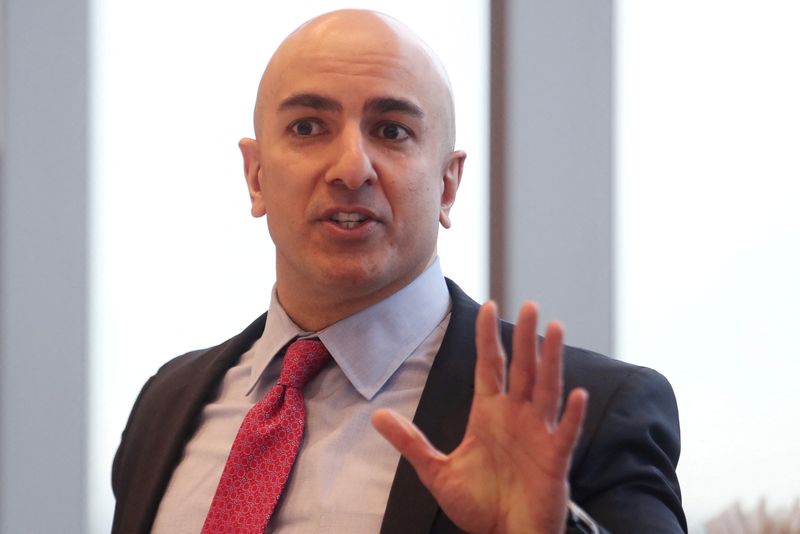By Ann Saphir
(Reuters) -The Federal Reserve has "more work to do" to get inflation back down to its 2% goal, Minneapolis Fed President Neel Kashkari said on Thursday, although he did not say specifically how much further he believes interest rates will need to rise to do the job.
"We've seen some real progress" from the Fed's rate hikes so far, Kashkari said at a town hall event livestreamed on the regional Fed bank's website, noting that the housing market has slowed, goods prices have fallen, and new leases are less expensive.
"The one area that is particularly concerning right now is that the services economy, outside of housing, has not shown any sign of slowing down," he said. "Wage growth is still growing faster than what is consistent with our 2% inflation target; that tells me we still have more work to do to bring the services side of the economy back into balance... we know we have to get inflation down, and we will."
Kashkari joined his colleagues in a unanimous vote last week to lift the Fed's policy rate range by a quarter of a percentage point to 4.75%-5%.
Projections from Fed policymakers show most expect to need to raise interest rates one more time to bring down inflation that by the Fed's preferred gauge rose 5.4% in January from a year earlier.
A new reading on that measure is due out Friday.
Kashkari noted that the Fed is closely watching whether stress in the banking industry, touched off by the failures of Silicon Valley Bank and Signature Bank (OTC:SBNY) just over a week before the Fed's most recent rate hike, will result in tighter credit and downward pressure on borrowing, growth and, ultimately, inflation.
"Banking panics and banking stresses tend to take longer than you think" to resolve, he said. "It's probably going to take us a while to understand, are there more losses out there?"

And while the U.S. banking system is sound and the vast majority of banks have positioned themselves for higher rates, he said, "what's unclear right now is how much the banking stresses of the past few weeks is leading to a sustained credit crunch, which would then slow down the U.S. economy."
The Fed is watching that "very very closely."